There is a reason music writers tend to stick with music writing rather than transferring their manifold talents to the business side of things. Our dirty secret is that, for all our exquisite taste, most of us — with a few exceptions — have no conception of what the rest of the world actually wants from their music. The first piece I ever wrote was a student newspaper review of a gig in a Leeds pub, in which I gushed about the headliners but noted, with a sneer, the fact that the support didn’t appear to have any actual tunes. We would be hearing no more from them, I cautioned. The headliners were a long-forgotten band called Tad. I forget what happened to the other band; their name was Nirvana.
I first saw Goat Girl a few years back, opening for an American duo called the Garden. They had just been signed by Rough Trade, the esteemed indie label, and I was persuaded to go by a couple of friends at the label. They were a little taken aback by my reaction: ‘God! Weren’t the Garden amazing! Goat Girl? Yeah, they were all right. Just another post-punk band though, really, aren’t they?’ It may not come as a complete surprise, then, to learn that two albums on, Goat Girl are one of our most highly regarded young bands, and that their second album, On All Fours, was a delight.
And here we all were. In a room together, waiting for actual live music again, albeit early on a Saturday afternoon rather than late at night (they played two socially distanced shows, one in the evening). With gigs having been so infrequent for so long, one noticed things one took for granted — the way a particular bass frequency makes the snares rattle across an unhit drum skin in quiet moments, how a kick drum makes your sternum thud. Other things leapt out too: for example — and I don’t mean this in a backhanded way — that Goat Girl had become one of the great backing-vocals bands. It can truly elevate a band — REM wouldn’t have been the same without the countermelodies of Mike Mills and Bill Berry setting off Michael Stipe’s lead — and Goat Girl were certainly elevated by theirs. If one reduced their music to its bare minimum, there is still a core of ‘another post-punk band’ — spindly guitars, spidery bass and inchoate complaints about capitalism — but at the Dome, the core quartet supplemented by violin, flute and keyboards, they seemed to have uncovered the secret of a hitherto undiscovered genre, pastoral post-punk, and the harmonies were crucial to that.
All four can sing, but bassist Naima Redina-Bock, who seems to take the fewest leads, is the one who holds the backing vocals together. When all of them were at the mic, the voices spiralling around the instruments, it was a delight.
Three hours later, a bus ride away, and it was Sarathy Korwar, an Indian jazz drummer with a three-piece band and an occasional vocalist. Korwar’s music is about identity, or misrepresentations of identity. His music is not for purists of any kind: his brilliant 2019 album More Arriving featured the Indian rapper Prabh Deep, among others; he is happy to mix hip-hop, Indian folk music, jazz and space rock in the same piece. And he’s very alert to the box people want to put him in: a couple of years ago he told me that white audiences are very keen on ‘eight-headed gods and local percussion, but that’s not the reality for a lot of people in India’. On ‘Bol’ the vocalist Zia Ahmed intoned: ‘I am Shiva, Al-Qaeda/ I am auditioning for the role of Terrorist 1/ Yeah, I can do that in an Arabic accent.’
There were moments when, not being a jazznik, I was a little baffled, such as when ‘Indefinite Leave to Remain’ fell into carefully planned chaos, as if the instruments were being thrown downstairs. But then Alistair MacSween returned to the ascending Reichian pattern that had opened the piece and yanked it all back into shape. When the music took flight — Sarathy’s fills making the drums a lead instrument, the saxes of Tamar Osborn and Christopher Williams riffing, then vamping — it was astounding and brilliant, a perfect and surprising welcome back to live music.
It’s a good job I’m not on the business side of music. If I were, I would sign Korwar, give him huge budgets, and lose my house. I might not even regret it; he’s that good.
Got something to add? Join the discussion and comment below.
Get 10 issues for just $10
Subscribe to The Spectator Australia today for the next 10 magazine issues, plus full online access, for just $10.
You might disagree with half of it, but you’ll enjoy reading all of it. Try your first month for free, then just $2 a week for the remainder of your first year.

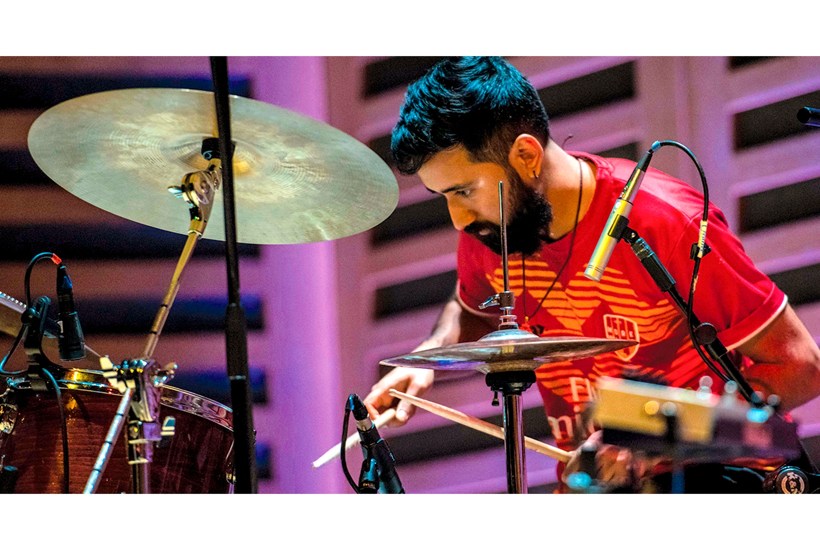
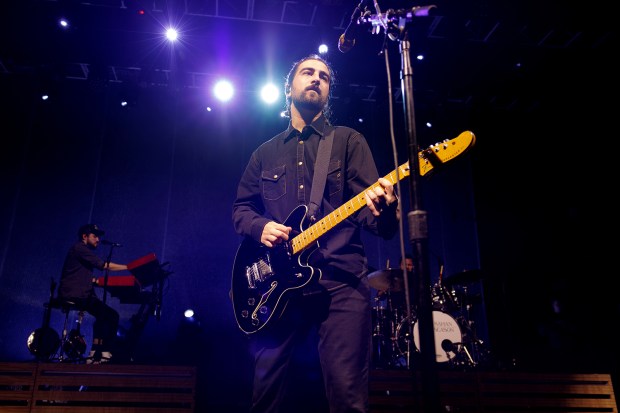
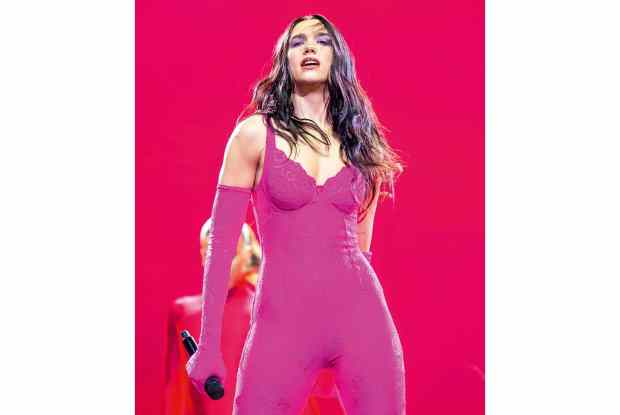
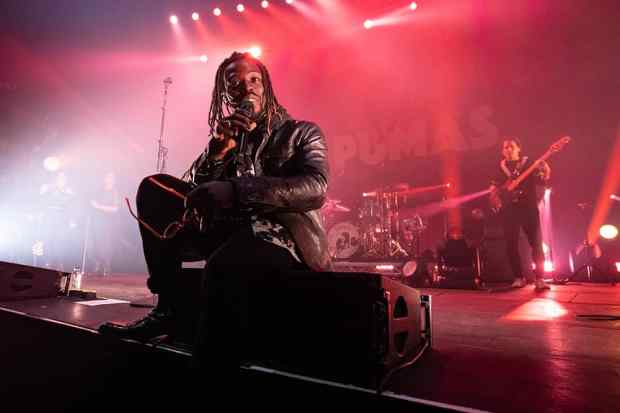
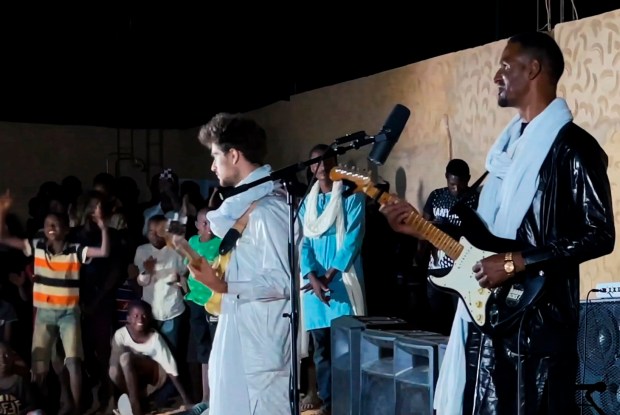
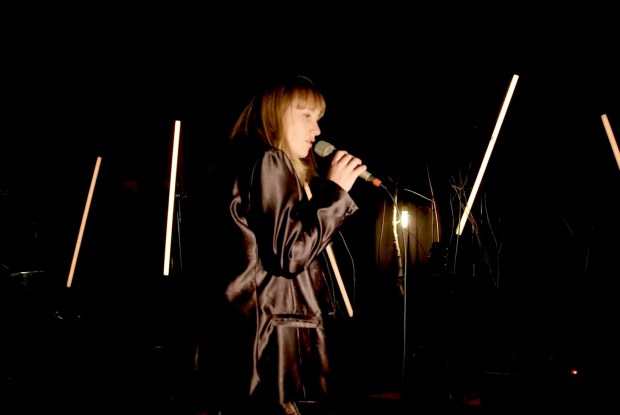
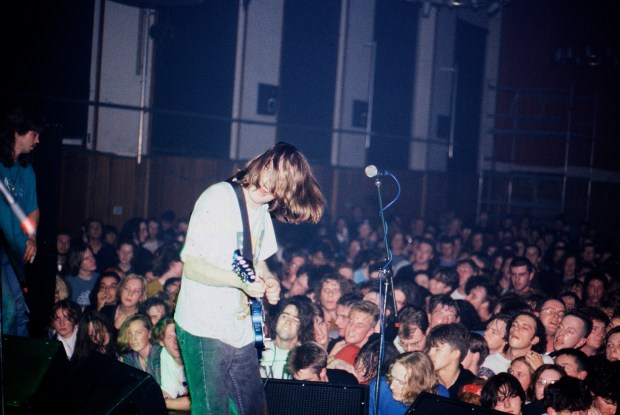






Comments
Don't miss out
Join the conversation with other Spectator Australia readers. Subscribe to leave a comment.
SUBSCRIBEAlready a subscriber? Log in